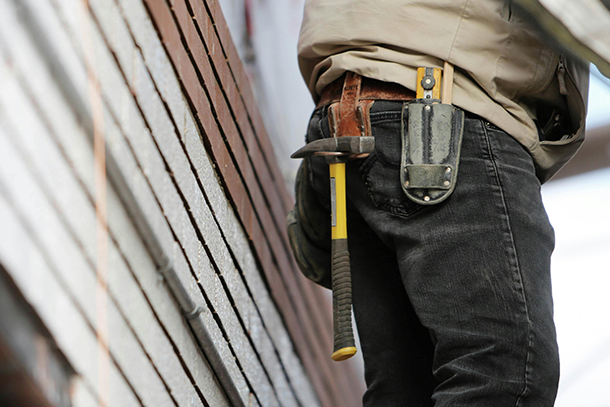Deferred maintenance might seem like a cost-saving measure in the short term, but it can lead to severe financial implications down the road. Many property managers may see postponing repairs and upkeep as a way to cut costs, yet this approach often results in even more significant expenses and detrimental effects on property value. One of the paramount responsibilities in property management is ensuring timely maintenance to maintain the property’s structural integrity, aesthetic appeal, and overall functionality.
When maintenance is deferred, minor issues can escalate into major problems. For example, a small roof leak that goes unrepaired can lead to extensive water damage and mold growth, affecting both the building’s structure and the health of its occupants. The costs of such damage often far exceed what it would have cost to address the issue promptly. This practice not only jeopardizes the safety and comfort of the tenants but also diminishes the property’s market value, making it less attractive to potential renters or buyers.
The Hidden Costs Of Deferred Maintenance
When property managers defer maintenance, they might seem to be saving money initially. However, the hidden costs of such a strategy can be substantial. Small problems left unattended tend to grow into significant issues that require expensive repairs. For instance, ignoring a minor plumbing leak can result in extensive water damage. This can lead to mold growth, which not only poses health hazards but also requires comprehensive remediation efforts.
Our professionals have observed that deferred maintenance can lead to higher insurance premiums as well. Insurers often view neglected properties as high-risk, resulting in increased costs for coverage. Additionally, unexpected and large-scale repairs can disrupt the cash flow, affecting the overall financial stability of the property management.
Tenant dissatisfaction is another hidden cost. Maintenance delays can lead to tenant complaints and a decrease in tenant retention rates. High turnover means more resources are spent on marketing, refurbishing, and administrative processes, driving up operational costs. By addressing maintenance issues promptly, property managers can avoid these hidden costs and maintain a stable, positive relationship with tenants.
Structural Integrity And Safety Concerns
Deferred maintenance jeopardizes the structural integrity and safety of a property. Neglecting essential upkeep tasks, such as roof repairs or foundation inspections, can lead to severe structural damage over time. Our technicians have encountered cases where minor roof repairs turned into major projects when left unattended, affecting the overall stability of the building.
Safety concerns also arise with deferred maintenance. Electrical systems, plumbing, and heating, ventilation, and air conditioning (HVAC) systems require regular inspections to ensure they are working correctly. Failure to maintain these systems can result in electrical fires, water damage, or inefficient heating and cooling, compromising the safety and comfort of the tenants.
Additionally, poorly maintained properties are more likely to experience infestations. Pests are attracted to environments where they can find shelter and food, often in unkept areas. Regular maintenance helps prevent such infestations, thereby protecting the property’s structural integrity and ensuring a safe living environment for tenants. Our professionals emphasize the critical role of timely maintenance in safeguarding both the property and its occupants.
Aesthetic And Functional Degradation
Deferred maintenance greatly impacts a property’s appearance and usability. A well-maintained property is attractive to tenants and potential buyers, whereas a neglected one can quickly appear run-down and unappealing. Issues such as peeling paint, broken fixtures, and overgrown landscaping can drive away prospective tenants, reducing occupancy rates and rental income.
Functional degradation affects the everyday experience of tenants. For example, outdated or malfunctioning appliances, HVAC systems, and plumbing fixtures can lead to discomfort and inconvenience. When tenants encounter frequent issues, they are less likely to renew their leases and may leave negative reviews, affecting the property’s reputation. Our technicians recommend regular updates and repairs to maintain both the aesthetic and functional aspects of the property.
Additionally, neglected properties often face more significant issues during inspections or audits. Building codes and safety regulations evolve over time, and failing to keep up with necessary maintenance can result in violations and fines. By promptly addressing aesthetic and functional issues, property managers can avoid these problems and ensure the property remains attractive and compliant.
Long-Term Financial Implications And Solutions
The long-term financial implications of deferred maintenance are far-reaching. Initial savings from delaying repairs often result in much higher costs later on. Emergency repairs, tenant turnover, and fines from code violations can quickly add up, making deferred maintenance a financially unsound strategy.
Proactive maintenance, on the other hand, helps preserve property value and reduce long-term expenses. Regular inspections and timely repairs can prevent minor issues from becoming major problems. For example, routine roof inspections can catch leaks early, avoiding costly water damage and structural repairs.
There are several key solutions for preventing deferred maintenance. Creating a budget specifically for routine maintenance can help ensure funds are available when needed. Keeping detailed maintenance records allows property managers to track repairs and identify recurring issues. Employing skilled professionals ensures that all repairs and inspections are thorough and effective.
To Summarize
Deferred maintenance may seem like a way to save money, but it ultimately leads to higher costs and diminished property value. By addressing issues promptly and maintaining the structural and aesthetic integrity of the property, we preserve its value and attractiveness. Effective property management involves regular inspections, timely repairs, and proactive solutions to prevent problems before they escalate.
Our team at Matrix Construction Services understands the importance of maintaining your property. Our professionals are dedicated to providing comprehensive maintenance solutions that protect your investment and enhance tenant satisfaction, including interior and exterior painting and renovations. Contact us today to learn how we can help you stay ahead of maintenance issues and keep your property in top condition.



